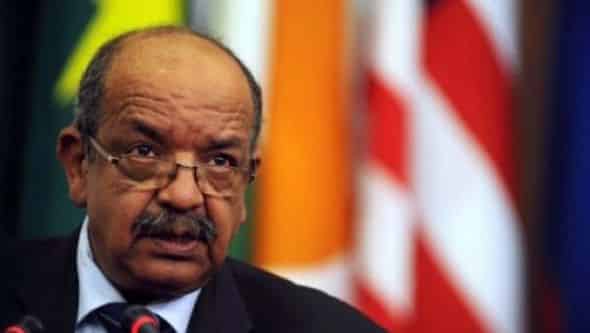The Algerian, Tunisian, and Libyan heads of state met in Tunis to discuss the establishment of a new Maghreb entity supposed to replace the Arab Maghreb Union, which they consider ineffective, but without Morocco or Mauritania.
On the sidelines of the 7th summit of heads of state and government of the Gas Exporting Countries Forum (GECF), in Algiers, on March 2, 2024, a meeting brought together Algerian President Abdelmadjid Tebboune, his Tunisian counterpart Kaïs Saïed and President of the Libyan Presidential Council Mohamed Younes el-Menfi. They then agreed to consult each other every three months.
The first round of this new diplomatic meeting took place on April 22, in Tunis, where the three presidents discussed the creation of what could become a new inter-Maghrebi structure.
Such a bloc, including Morocco and Mauritania, already exists, at least in theory, but it seems that internal dissensions – rupture of diplomatic relations between Morocco and Algeria since 2021 and the cold snap between, on the one hand, the Cherifian kingdom and, on the other hand, Tunisia and Libya – got the better of the Arab Maghreb Union (UMA). A UMA which has never been efficient and which has not met for more than twenty years.
Algeria, a driving force
In a world made up of integrated regional blocks, the three countries of the central Maghreb know that it is necessary to come together, or even to set up a union. The official statement made public at the end of the meeting is explicit. It first highlights support for the Palestinian people and the desire to recognize a Palestinian state whose capital is Jerusalem.
A point which recalls that Algeria, which currently sits as a non-permanent member of the United Nations Security Council, proposed two motions: a request for a ceasefire in the Gaza Strip – which was approved – and a request for admission of Palestine as a member state of the UN, rejected by an American veto.
Algeria therefore intends to be a driving force in this triangle of common interests. The goal of broader cooperation includes increased protection of common borders against irregular migration flows and organized crime, including human and drug trafficking.
Harmonization of migration policies
The Tunis declaration also provides for a harmonization of positions vis-à-vis Europe, but also sub-Saharan countries, concerning migratory phenomena, and the establishment of “mechanisms for joint major projects and investments in areas and priority sectors.
Declarations and formulas which recall the main lines of the Mattei Plan that Italy, against all odds, intends to promote in Africa. The Tunis declaration also cites green hydrogen projects, which are part of the recommendations formulated by Rome.
A coincidence all the more notable as the President of the Italian Council, Giorgia Meloni, was again in Tunis, on April 17, this time for the signing of three new agreements. She also announced a visit to Algiers towards the end of April.
Cooperation and sovereignist discourse
The Tunis declaration, which was read by the Tunisian Minister of Foreign Affairs, also provides for cooperation to develop an electricity connection project, remove obstacles to the movement of goods and people, and create free trade zones. and maritime lines between the three countries to stimulate the economy.
Nothing very new and has not already been initiated in bilateral relations between Tunisia, Algeria, and Libya. One of the worrying points, however, is the expressed intention to exploit the fossil water reserves in the basements of the three countries, without any other details.
But the principle of rejecting any foreign interference, particularly in Libya, which must nevertheless be endorsed by its two neighbors, in its process of stabilization and organization of elections, has reinforced the sovereignist discourse that the three countries now carry.
Officially, the door is not closed to entry into Morocco and Mauritania
But this new “bloc of three” has another effect: it now splits the Maghreb in two, putting Morocco but also Mauritania at a distance, even if, in the official discourse, the door is not closed to new entries. in the club.
The Algerian Minister of Foreign Affairs, Ahmed Attaf, speaks of “a new formula” for consultation aimed at replacing a “UMA in a coma”.
African migrants, stranded on the seaside on the border between Libya and Tunisia in Ras Jedir, hold up signs asking for help, July 26, 2023.
We are therefore witnessing a new beginning of Maghreb integration, this time at the initiative of Algeria, which has taken under its wing the two “lost people” of the 2011 revolutions. But the contours of this whole remain vague.
“At this stage,” comments Raouf Farrah, a researcher at the Global Initiative against Transnational Organized Crime (GI-TOC), “this tripartite is still a project under construction. The three parties have quite divergent interests and very different economic and strategic weights, even if there is a common desire to move forward towards a close dialogue between the three countries. When we approach the substantive issues, differences will appear, especially since the Libyan side is extremely weak, even in Tripolitania.”
The next meeting, which will also be a test of the solidity of the new bloc, is planned for three months. Against the backdrop of presidential elections in Algeria and Tunisia.














